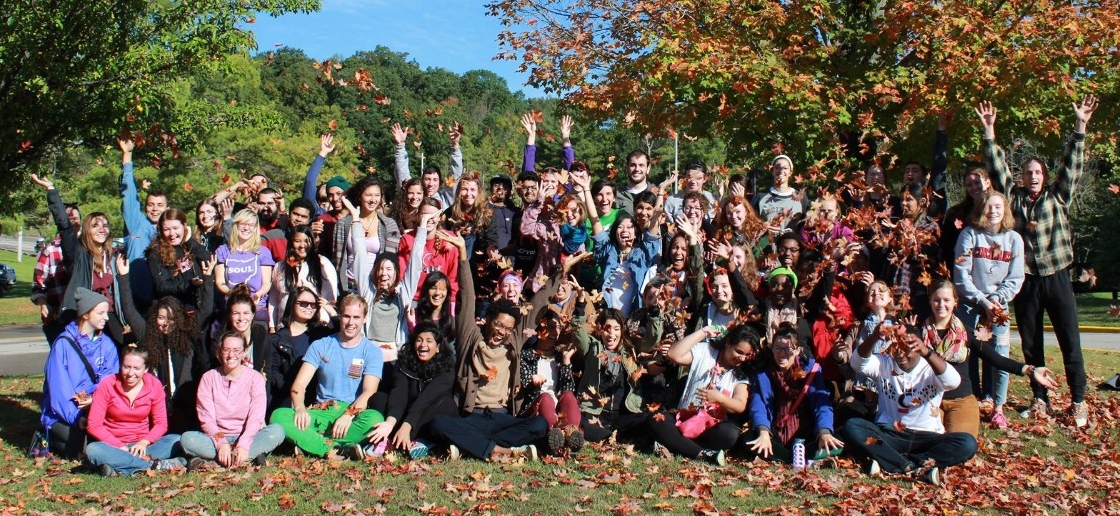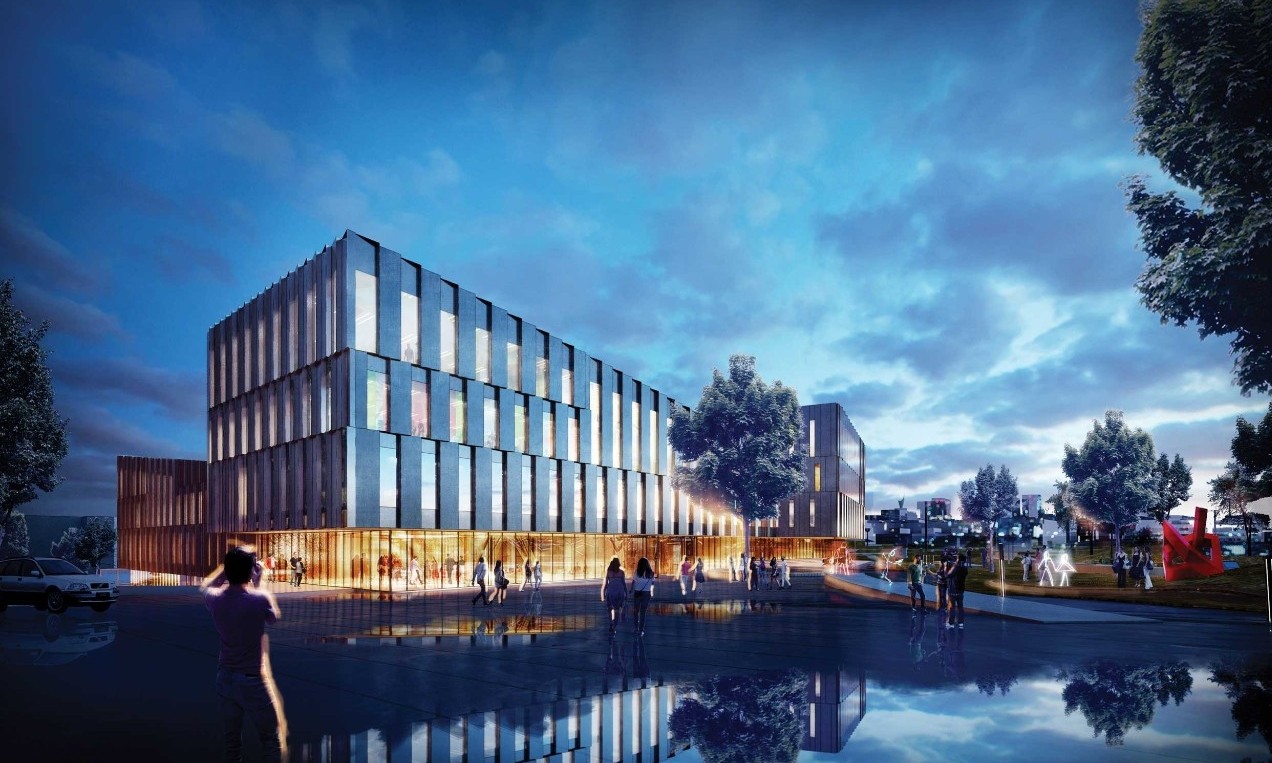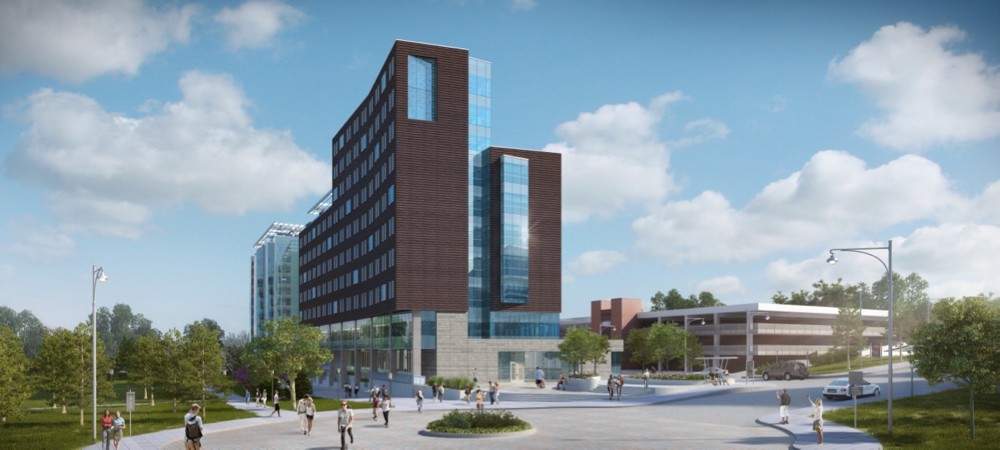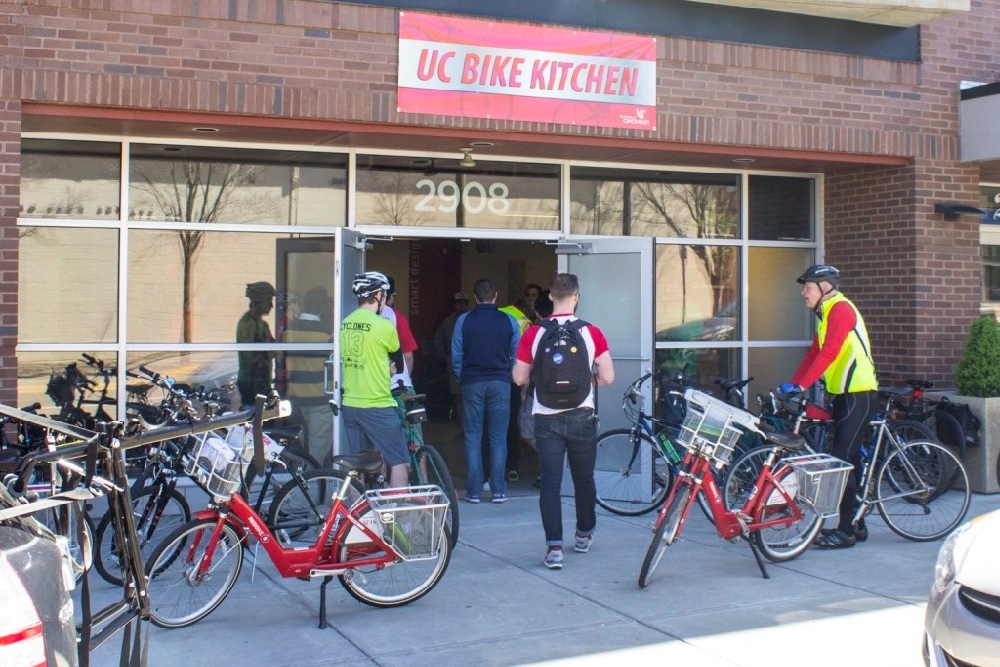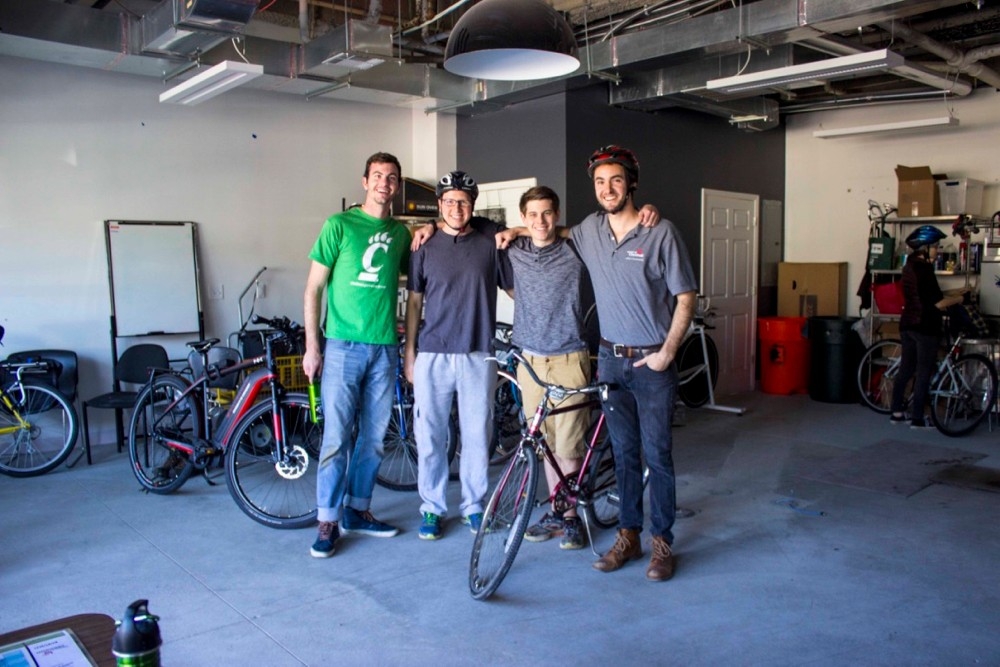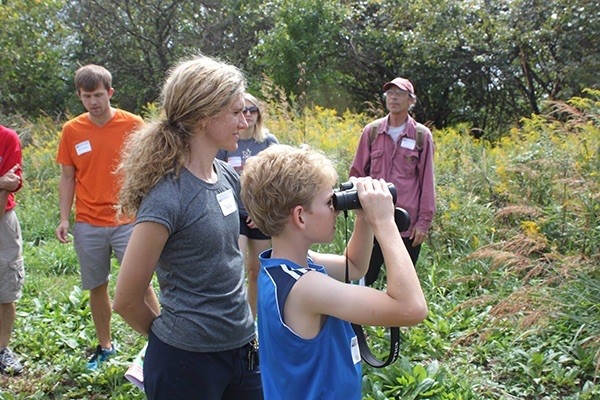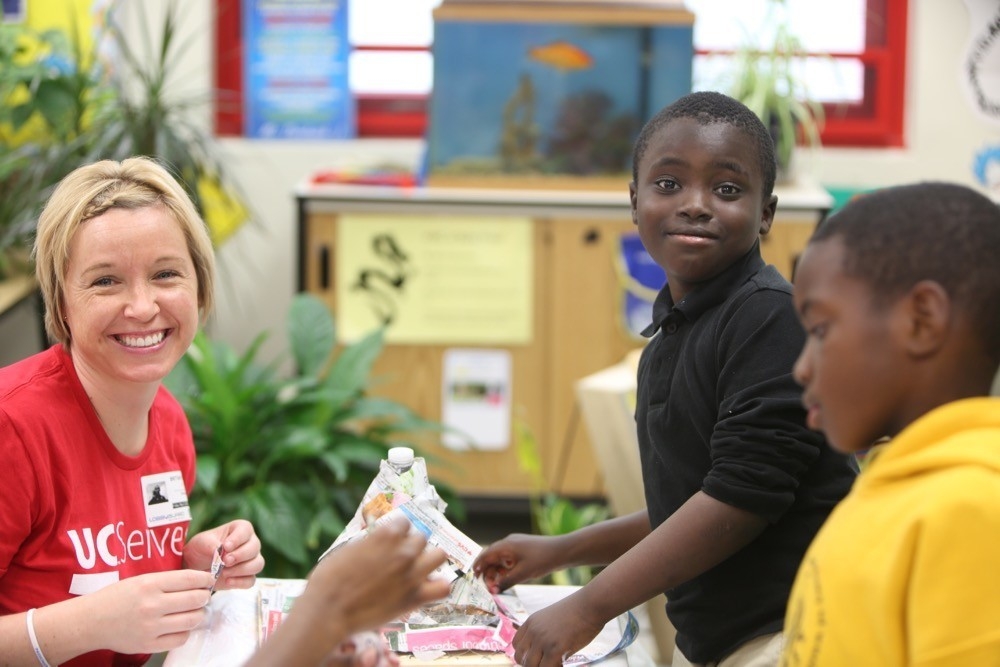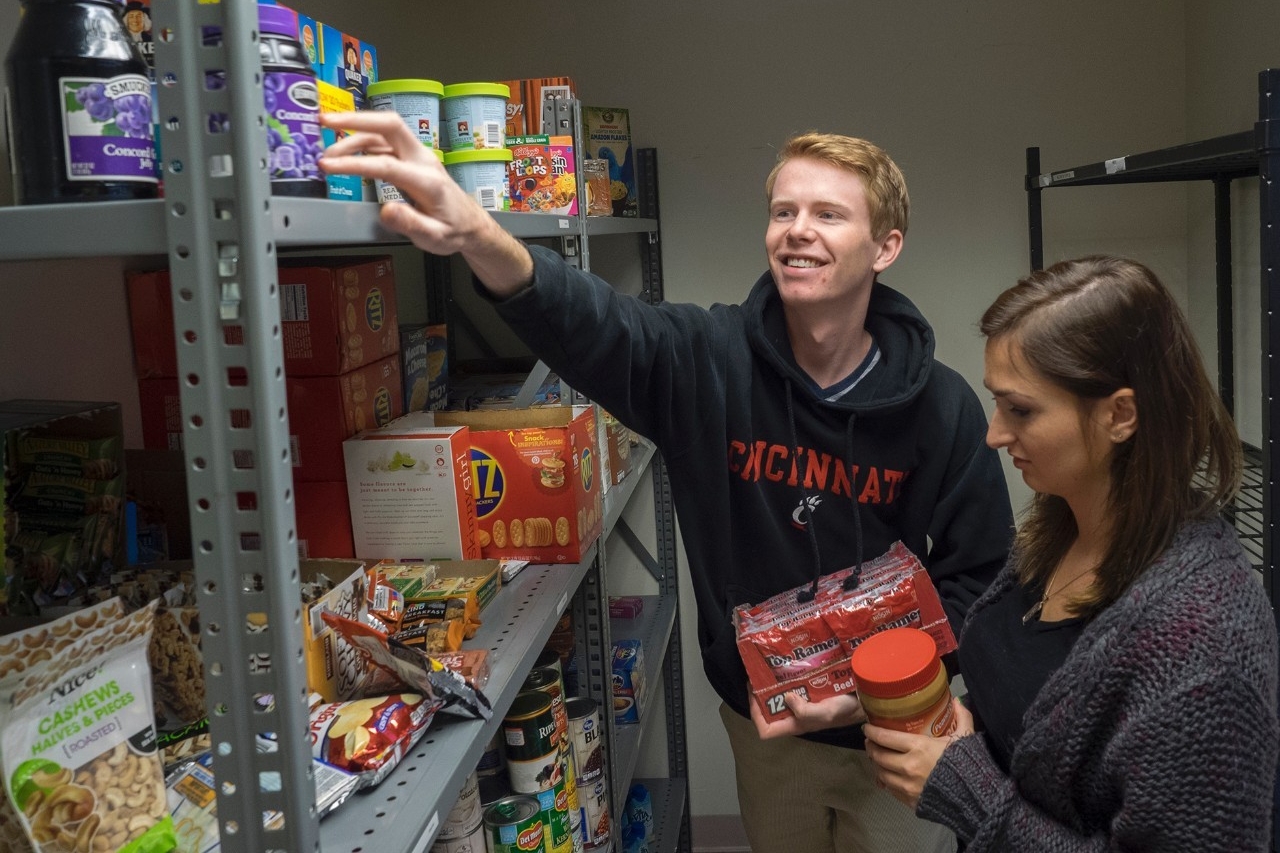UC students shared innovative ideas for creating new campus "green initiatives" at a recent college sustainability summit.
Red and black UC goes green
As April 22 Earth Day nears, UC reduces energy costs, enhances sustainability and builds an award-winning campus one "green" brick at a time.
By Melanie Schefft
513-556-5213
Photos: provided
April 20, 2017
While the University of Cincinnati continues to reduce energy costs, build LEED-certified award-winning structures and increase renewable efforts, Earth Day events held across campus in April help highlight the benefits of living an eco-friendly, sustainable lifestyle.
For a complete list of events, check out UC Sustainability’s Facebook site.
Examples of UC’s ongoing sustainability success –– a constant evolution involving staff, students and faculty: UC facilities management announced energy-saving efforts with a 39 percent reduction in greenhouse gas emissions from the plant on main campus resulting in more than $600,000 in rebates from Duke Energy over the last two years.
In addition, UC recycled more than 2,000 tons of materials in 2016 including plastic, paper and aluminum cans; metal and electronics; cardboard and books; cooking and motor oil and landscape and yard waste. Also in the last two years, 14 tons of used campus coffee grounds were aged and composted to be turned into landscape fertilizer.
When it comes to energy efficiency, UC’s Department of Planning + Design + Construction brings UC into the forefront earning Leadership, Energy and Environmental Design (LEED) silver certification on eight campus buildings and living spaces including a new construction next to Scioto, currently referred to as the “High Rise on the Green” student residence hall.
“Our new college of business building is going to be our first LEED version four, which has many more requirements than the previous versions,” says Mary Beth McGrew, university architect and senior associate vice president of UC Planning + Design + Construction. “The LEED versions are based on where we source our materials [and] how we demolish the previous building so we aren’t putting toxins into the environment and landfill. It’s everything from low volatile organic compound paint to carpet that can be recycled, so the difference is a big change, and our students really care about those things.”
Building a sustainable campus
Other LEED certified architectural initiatives include:
Nippert Stadium West , part of an ambitious overhaul of UC’s century-old Nippert Stadium complex, offering dramatic angles and spectacular views. The LEED Silver certified structure is one of eight LEED certifications on UC’s campus.
UC Campus Services Building, the former Sears building on Reading Road, is being repurposed as a UC startup and research offices. The new building, the 1819 Innovation Hub, will include occupancy sensors, a high-efficiency gas boiler heating, bioswales to remove silt and pollution from stormwater runoff adjacent to the parking area, stormwater retention tanks and low maintenance, long life-cycle materials.
Teacher’s College, Phase 3 includes vacancy sensors, rapidly renewable materials such as cork flooring, low VOC paint, day lighting and side lights bringing borrowed light into central corridors.
Innovation at work
According to Brian Phalen, LEED architect in UC’s Planning, Design and Construction, UC has a requirement for all new construction and renovations to be certified LEED Silver or higher. Two primary LEED/sustainability focuses are the management of stormwater and energy usage.
All new construction projects at the university are encouraged to develop ways of reducing stormwater runoff, as well as utilizing energy gains from a cogeneration central utility plant in order to efficiently condition the heat and air in buildings throughout campus.
“Our cold- and hot-water pipe system generated from a central location under the football practice field helps cool and heat campus buildings much more efficiently, saving money and energy and producing less carbon,” says Mike Hofmann, UC director of utilities. “In the summer months, we pump 42- to 45-degree cool water through a series of pipes into buildings all over main campus. This cool water, blown by fans through the building walls, helps lower the baseline temperature, making more efficient use of power supplied by the grid, which is often wasted at night and overtaxed during the day.
“Conversely, in the winter we shoot hot water through pipes reducing the gas-powered heat requirements in each building.”
Students are also an active part of UC’s sustainability efforts, says Daniel Hart, sustainability coordinator in UC's Department of Planning + Design + Construction. “We employ between 10 and 15 part-time student workers, called ‘sustainability advocates,’ [that] are really the lifeblood of our programs.
"The interdisciplinary students who work for the Office of Sustainability help to facilitate the recycling program at athletic events, run UC’s Bike Kitchen, Bike Share program, organic garden, and coordinate educational opportunities such as environmental lectures, films, workshops, and tours."
A sampling of UC "green" programs
UC Bike Kitchen — located on 2908 Vine St., is a free service to UC and the community where a trained mechanic will fix flat tires, brakes or gears. Hours fluctuate from semester to semester.
Bearcat Bike Share — located in the Campus Recreation Center, students can go in and swipe their Bearcat card at the member service center and rent one of 20 bikes for up to three days for free (including lock and chain).
Zimride –– a car-sharing system for faculty, staff and students to post an upcoming ride out-of-town for the weekend for others traveling on the same dates to split the cost of the rides.

Zipcar –– a car-rental system for a students, faculty and staff members to rent a car for a personal trip or for visitors who don’t have a car on campus. Read more
PLANETpalooza — 11 a.m.-2 p.m., Saturday, April 22, Join the UC Alumni for a family friendly day of nature hikes, educational talks on sustainability by UC biology professors and great food at the University of Cincinnati Center for Field Studies, 11053 Oxford Rd., Harrison, Ohio 45030. Directions
UC Serves –– A community service initiative where UC faculty and staff volunteer at various sites around the Cincinati area to help clean up parks, work with elementary students and help build projects for those in need. The next UC Serves event will be on May 19, 2017. To register
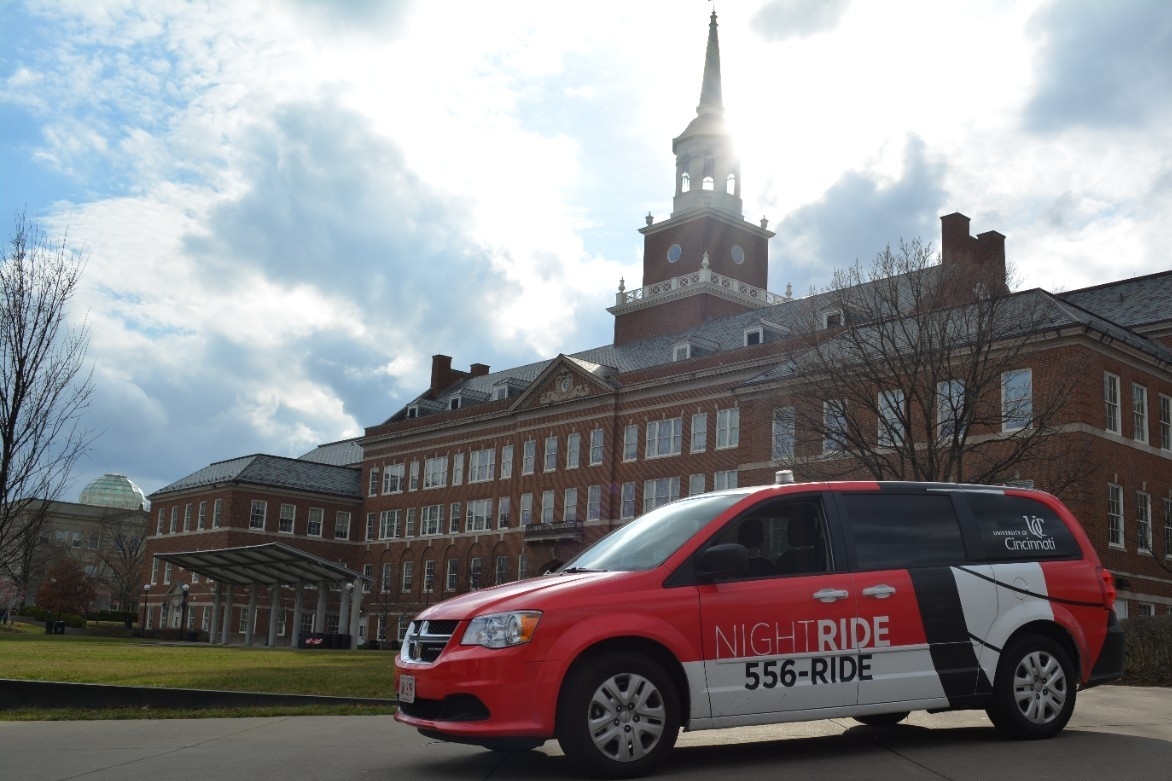
UC NightRide — On-demand safe transportation for students, staff and faculty within one mile of UC’s main campus, Sunday-Wednesday, 8 p.m. to midnight; Thursday-Saturday, 8 p.m.-5 a.m.
UC Campus Services Food Pantry — The UC Bearcats Pantry provides free food, hygiene items, cleaning supplies and meal vouchers for campus dining halls to students with food and other insecurities.
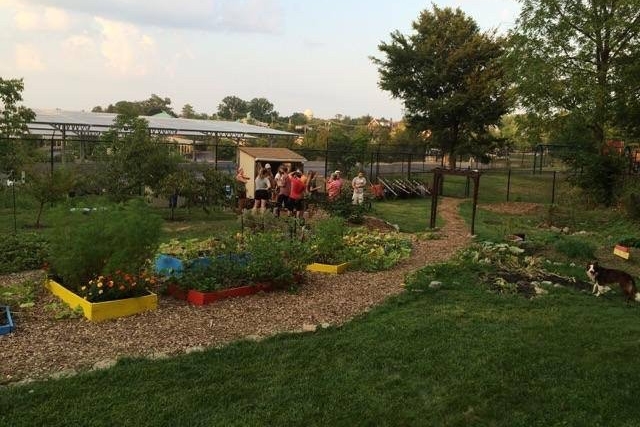
UC Soiled Hands Learning Garden — An off-site garden on Ruther Avenue where students develop their interest in gardening, sustainable land use, and build community. Read more
Residential recycling
Move-In/Move-Out recycling events takes items left behind with three separate initiatives to try to alleviate waste and encourage students to donate materials.
First initiative is from April 21 to 28 where UC residence hall advisors partner with St. Vincent de Paul to provide bins in the lobbies in every dormitory on campus for donating materials the students will leave behind.
Second initiative is the Re*Use Exchange Market between April 24 and 28, from 10 a.m.-3 p.m. each day on the east side of the old YMCA building on Calhoun. This helps students who live off campus donate unwanted goods and materials and pick up other items they may want in exchange. It’s a free market open to students who live off campus and at the end of the week UC donates what is left to St. Vincent de Paul.
Third initiative is run by the City of Cincinnati where unwanted items are collected in orange bags and left on a doorstep on a specified day for the city to pick up.
“These programs [teach] valuable skills and life experiences regarding sustainability. [Students] take the tools they learn here to go on and become proactive change makers and create a better world,” says Hart.
Mark your calendars:
- Move-In/Move-Out Recycling Event –– April 21-28, all UC residence halls.
- Earth Day Garden Work Party –– 10 a.m.-1 p.m., Saturday, April 22, Volunteers get UC's Garden at 3310 Ruther Ave. ready for spring planting.
- PLANETpalooza EarthDay — 11 a.m.-2 p.m., Saturday, April 22, at the UC Center for Field Studies, 11053 Oxford Rd., Harrison, Ohio 45030.
- Film Series "Rebels with a cause" –– Monday, April 24, TUC Cinema. Film exploring how a variety of stakeholders - ranchers, farmers, conservationists, and politicians from both parties, joined together to create and protect a system of fourteen national seashores in California.
- Re*Use Market — Noon-3 p.m., April 24-28, on the lawn adjacent to the old YMCA on Calhoun Street.
- Earth Day plant adoption event –– 10 a.m.-3 p.m., Thursday, April 27, 6th floor Rieveschl Hall. Plants include easy-to-grow succulents, aloe and cacti.
- UC Serves –– All-day community service initiative, Friday, May 19, 2017.

